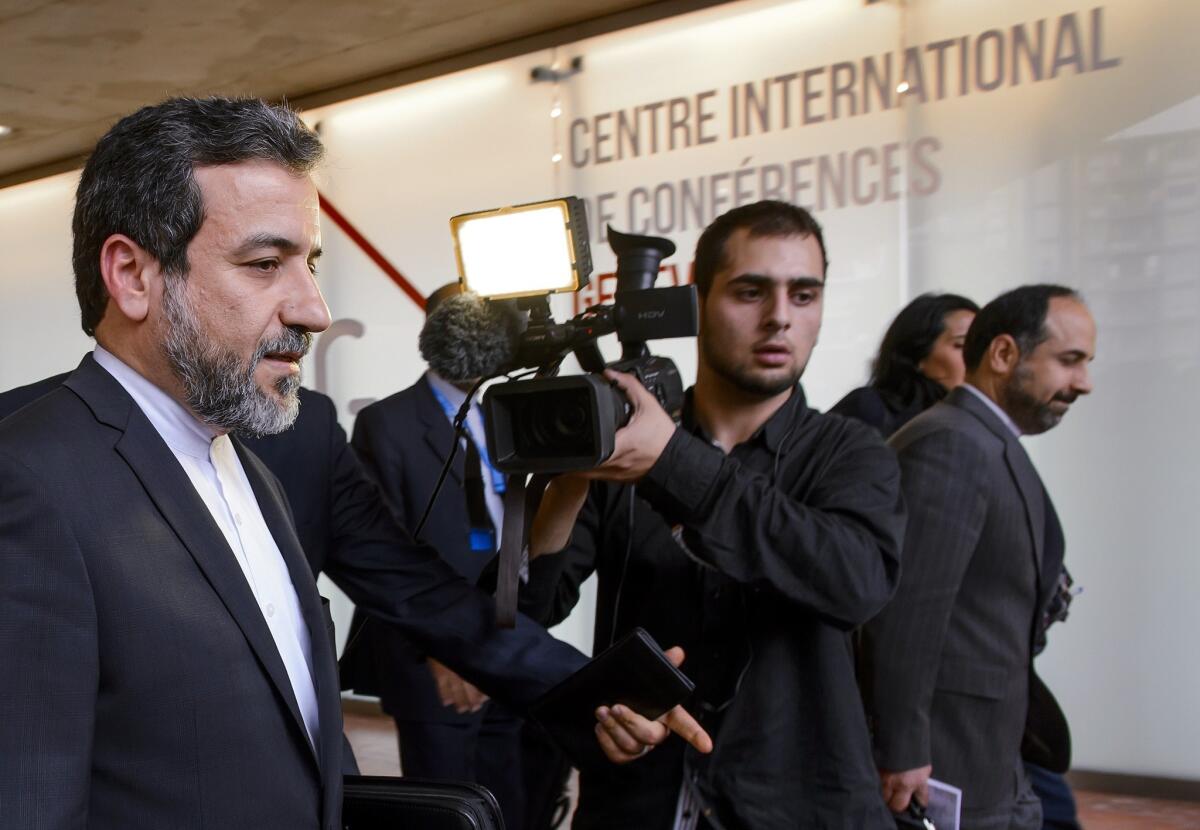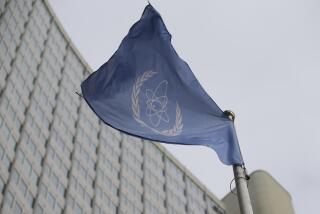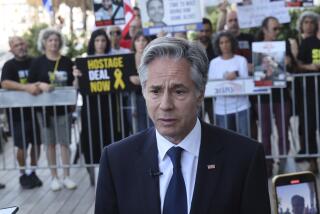Iran’s nuclear proposal insists on right to enrich uranium

GENEVA -- Iran’s new proposal for ending the crisis over its nuclear program insists on the country’s right to enrich uranium and demands removal of all sanctions on its economy, an Iranian news agency reported.
The Iranian Student News Agency reported that the proposal, which was presented Tuesday morning at negotiations with six world powers in Geneva, says Iran will cooperate with the United Nations’ nuclear watchdog agency, and on other “areas of concern.”
But the proposal, as described by ISNA, doesn’t include some details Western officials have hoped to see, such as an end to the creation of medium-enriched uranium, which can be easily converted into nuclear bomb fuel. The official Islamic Republic News Agency published a similar report.
Both reports were initially only on the agencies’ Farsi-language sites.
Ray Takeyh, an Iran specialist with the Council on Foreign Relations, said the report, if correct, may be a disappointment to the Obama administration and other Western governments.
“I can’t believe they will be happy with this, if this is the whole thing,” he said.
He said, however, that the report maybe describe only an opening position, and Iran could make more concessions as negotiations get underway.
Iran’s proposal was presented Tuesday morning at a meeting of the six powers that have been trying for 10 years to broker a deal with Iran over its controversial nuclear program. Iranian and Western officials haven’t yet commented on the specifics of the plan, although Catherine Ashton, the European Union’s foreign policy chief, said she considered the presentation “very useful.”
Abbas Araqchi, Iran’s deputy foreign minister, told reporters after the morning session that the other delegations’ reaction to the plan was “good.”
The six world powers were to meet later Tuesday afternoon with Araqchi to delve into more details of the plan.
There has been wide expectation that Iran would be more flexible in this negotiation because of its desire to ease the sanctions that have been damaging its economy.
[For the record 8:35 a.m. PDT Oct. 15: An earlier version of this post referred to the Iranian Republic News Agency. It is the Islamic Republic News Agency.]
ALSO:
Afghanistan governor assassinated in mosque bombing
Only Muslims can call their deity Allah, Malaysian court rules
Death of Nazi war criminal in Rome creates quandary over funeral
Staff writer Richter reported from Geneva and special correspondent Mostaghim from Tehran.
More to Read
Sign up for Essential California
The most important California stories and recommendations in your inbox every morning.
You may occasionally receive promotional content from the Los Angeles Times.











